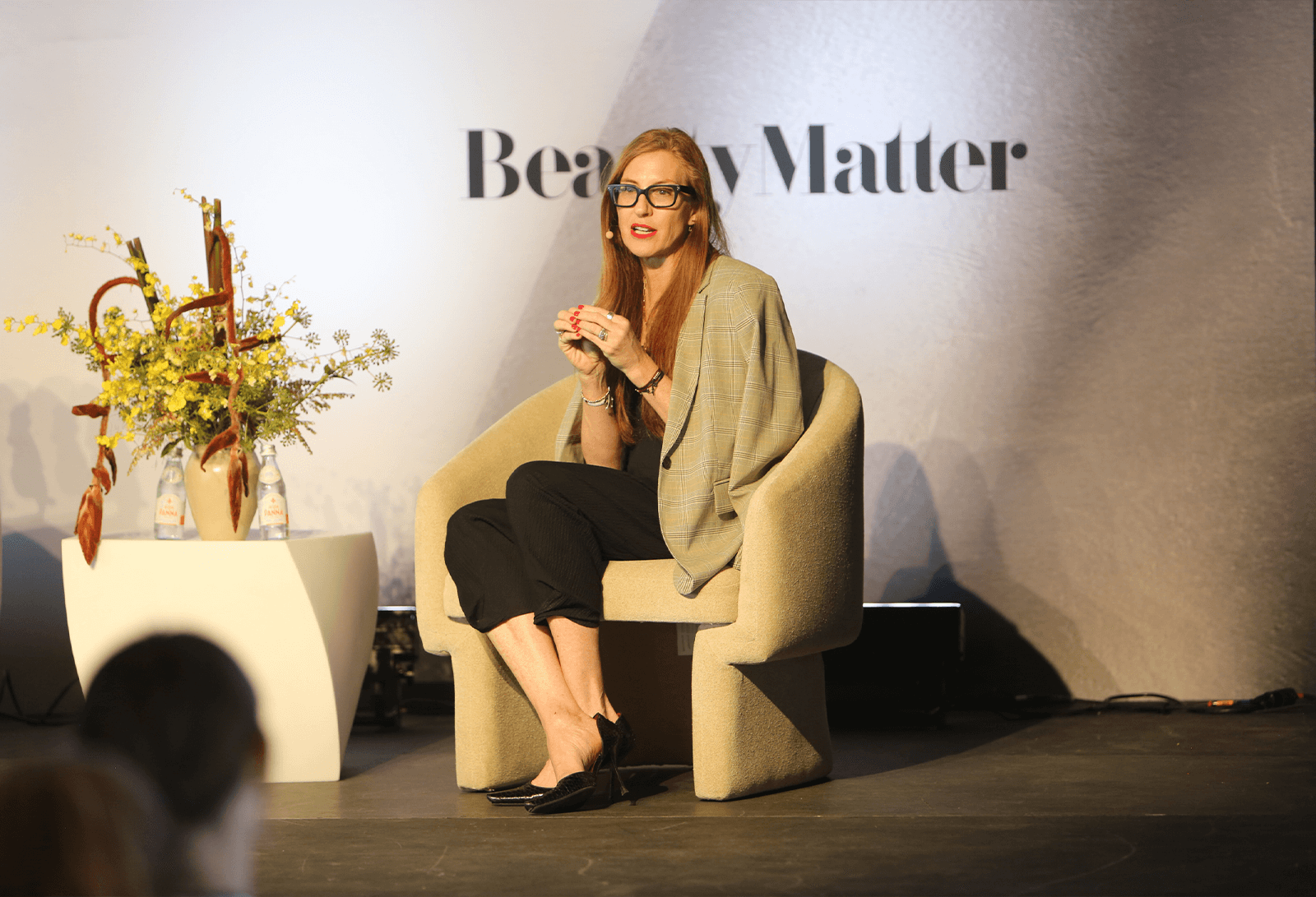As businesses strive to achieve growth and scale in today's rapidly evolving marketplace, the ability to attract, retain, and leverage top talent has become a critical competitive advantage. Yet, despite the ongoing "war on talent," many companies still rely on outdated hiring and retention strategies that have remained unchanged for decades. In a panel discussion on winning the talent war and building lean, high-performing teams, BeautyMatter co-founder and CEO Kelly Kovack gathered a diverse group of entrepreneurs, executives, and educators to discuss the future of work.
Panelists included Meloney Moore, Associate Dean of the de Sole School of Business Innovation at the Savannah College of Art and Design; Scott Gurfein, founder and CEO of SkyeFox Ventures and Brand-OS; and April Uchitel, co-founder and CEO of THE BOARD. Together, they shared insights on evolving workforce dynamics and the need for a fundamental shift in how teams are built and talent is managed. Covering topics like the unique attributes of Gen Z and the rise of fractional consultants, the discussion offered a look into the future of work—a future that, according to the experts, is already taking shape.
Drawing from her experience transitioning from the corporate world to academia, Moore emphasized the need to rethink organizational structures to better accommodate multidimensional talent. "They’re in my building. I live with them, I talk to them daily. And what I can say is, you have no idea what's coming for you. It is a dynamic generation," she says. "They are very brave, and it’s far more nuanced than the current stereotypes."
SCAD’s Business of Beauty and Fragrance (BFA) program highlights the industry's growth and underscores the need for multidimensional talent, says Moore. However, for this talent to thrive, it must be placed in an environment that supports its potential. This requires a fresh look at organizational structures and how they are designed.
Moore suggested that organizations take inspiration from the film industry’s project-based hiring model, where talent is assembled for specific projects and then disbanded, rather than following traditional functional hierarchies. “I think that model, especially in the start-up area, might work very well,” she says, “and [larger companies like] Estée Lauder, L'Oréal, and Coty can also rethink how they use their organization to develop talent.”
Uchitel echoed the need for a more flexible, collaborative approach to team building. She discussed the rise of fractional consultants, who are bringing their expertise to brands on a project-by-project basis. THE BOARD, a collective of experts from various industries and disciplines, partners with brands to drive growth by assembling tailored teams of vetted consultants.
“We create a kind of mash-up where we connect talent to brands based on what they need at that time,” Uchitel explained. “If you think about who you really need, fully loaded on a P&L [profit and loss], at a particular stage of the business, some roles absolutely require full investment. But there’s also incredible talent and knowledge that can be tapped for a three-month, six-month, or even 12-month project that brings exponential value.”
This shift toward fractional talent was accelerated by the Covid-19 pandemic, which, as Uchitel put it, “blew the doors open on the idea that generosity and ambition can coexist.” Additionally, the rise in remote work has expanded the talent pool, allowing brands to access expertise from across the country.
“People are willing to do a fractional job, which is more affordable [for brands],” says Uchitel. “You’re getting a fraction of their time for a fraction of the price, but with it comes 20 years of expertise, their network, their Rolodex, and so much more value than hiring a junior person full-time for the same cost.”
Uchitel emphasized the need to adapt to changing roles and responsibilities, focusing on assessing business needs rather than solely relying on job titles. She advocated for bringing in specialized talent to offer fresh perspectives and drive growth, rather than trying to fit candidates into predefined roles.
“It’s really about identifying the problem. Instead of putting a title on it right away, we should ask, ‘What work needs to be done? What’s the biggest pain point?’” says Uchitel.


Gurfein echoed this sentiment, sharing his experience in scaling brands and stressing the importance of finding the right balance between in-house and outsourced talent, as well as between in-person and remote work.
“Historically, our model for over 20 years has been remote, operating as an integrated part of the team. Watching what has happened over the past couple of years, I believe flexibility is key. Whatever works for the organization—whether hybrid, in-office, or fully remote—should be the approach,” Gurfein explained.
While some, like Gurfein, have embraced remote work for decades, others, like Uchitel, highlighted the importance of in-person interactions for networking and career development.
“I can’t imagine starting my career without ever being in an office with the people I’m building initial bonds with. I still connect with people I’ve known for decades in this industry, and it wouldn’t be the same if I hadn’t spent time with them in person,” Uchitel remarked.
Gurfein shared his experience scaling brands and the importance of focusing on high-value activities, such as marketing, sales, and product design, while outsourcing lower-value tasks like finance and operations. He emphasized the critical importance of synergy between finance and operations in business, noting that their interconnectedness can determine a company's success or failure. He highlighted that even with soaring sales, unforeseen challenges like global recalls could arise unexpectedly, underscoring the necessity of having robust resources in place to manage such situations effectively.
“A great product alone isn’t enough; without strong finance and operations, you’re not really in business,” he stated. Gurfein expressed concern over how often investors back brands without ensuring that essential support teams are in place to assist founders continuously. While companies may not need to fully staff finance and operations, he stressed the need for accessible expertise to create a cohesive business structure.
He warned that finance and operations must work in tandem, as a fractional CFO who isn't aligned with operations won't be an effective strategist. The complexities of business arise quickly when these areas aren't integrated. His advice is clear: establish this synergy before launching or consider delaying until it’s in place, as it’s fundamental to building a successful business.
In discussing the integration of recent college graduates from Gen Z into the workplace, Kovack points out that this generation perceives the world differently. They prioritize passion over monetary motivation, often supplementing their income with side gigs. Therefore, it’s important for companies to communicate the significance of their tasks, no matter how small, and how these contribute to the organization’s larger goals.
At SCAD, Moore says the focus is on curating hands-on learning experiences that allow students to engage deeply and build resilience through trial and error. While Gen Z may seem tech-savvy and brilliant, they are still relatively inexperienced and may need guidance to navigate professional environments. Companies should be patient and provide the necessary support to help these young professionals thrive, ensuring they understand the value of their contributions as they adapt to the workplace.
Key Takeaways: